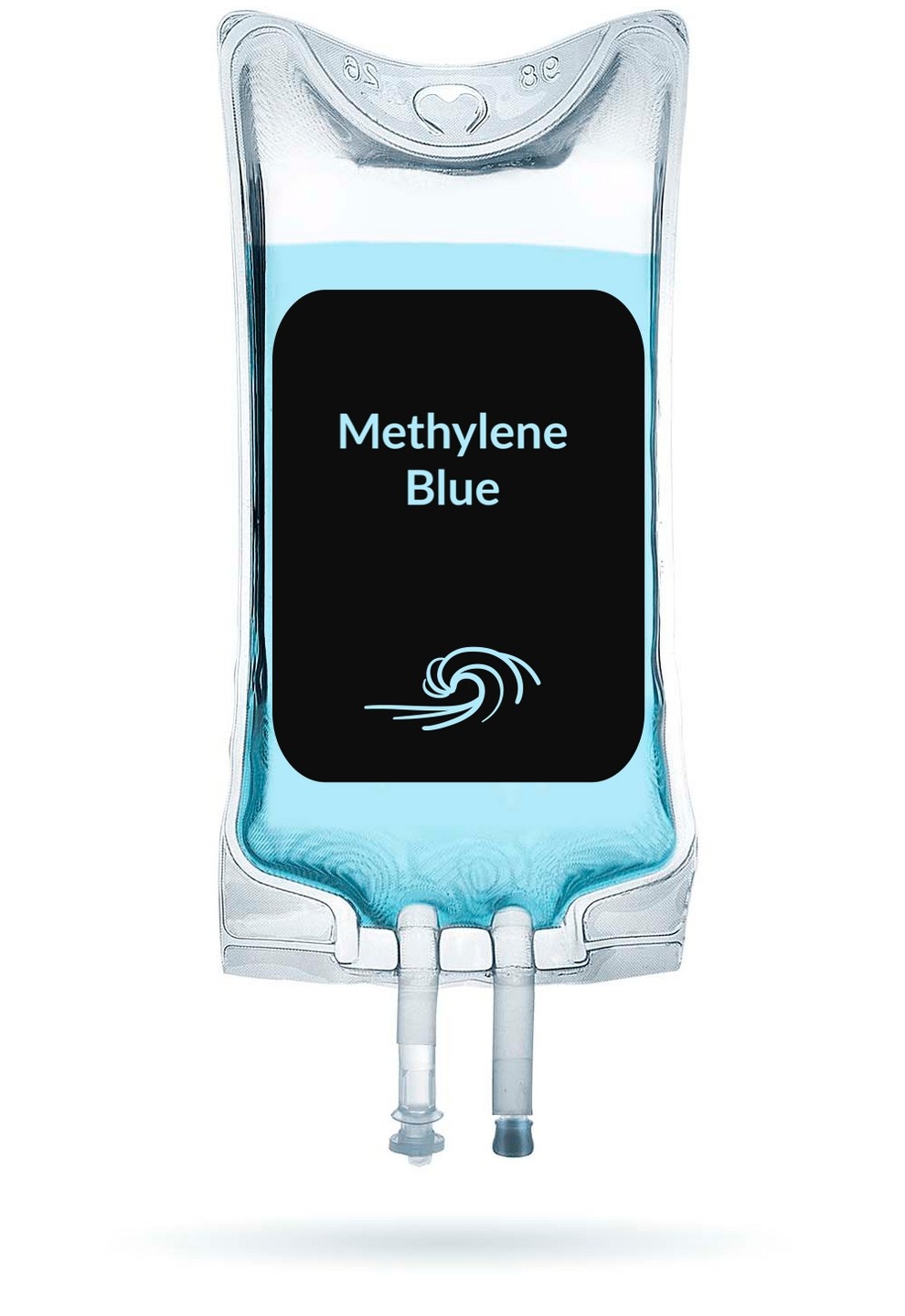Methylene Blue
Methylene blue has been used a medication for various infectious diseases including Malaria since the late 1800s. It is also one of the most potent brain boosters (nootropic). Methylene Blue has been shown to improve memory, focus, and mood while offering a high level of neuroprotection.
How Methylene Blue Works in the Brain?
Methylene blue works in the brain partially by reversibly inhibiting MAO-A. This means that methylene blue can prevent dopamine and serotonin from being broken down, leading to increased levels of these neurotransmitters. Both neurotransmitters play primary roles in memory, focus, learning, mood, and many other aspects of brain health. Thus by increasing levels of these neurotransmitters, methylene blue can provide significant benefits to cognitive performance and overall well-being.
Methylene Blue in the Whole Body
Methylene Blue can help you when there is a problem with how the body’s cells use energy. When the body is not functioning optimally, it is not making enough ATP, which can cause too many free radicals. But methylene blue helps the cells use energy more efficiently and lowers free-radical production.
Methylene Blue and Memory Enhancement
Methylene blue has been found to improve memory in many studies. (Penny D Riha , Aleksandra K Bruchey, David J Echevarria, F Gonzalez-Lima, Memory facilitation by methylene blue: dose-dependent effect on behavior and brain oxygen consumption Eur J Pharmacol. 2005). One paper showed that methylene blue can reverse forgetfulness and enhance cognitive function in people with early-stage Alzheimer’s disease. (Julio C. Rojas,a Aleksandra K. Bruchey,a and F. Gonzalez-Lima, Neurometabolic mechanisms for memory enhancement and neuroprotection of methylene blue Prog Neurobiol. 2012). In fact, one study showed that methylene blue was even able to reduce plaque build-up in the brains of mice with Alzheimer’s disease. Plaque build-up is a hallmark sign of Alzheimer’s (David X. Medina, Antonella Caccamo, and Salvatore Oddo, Methylene Blue Reduces Aβ Levels and Rescues Early Cognitive Deficit by Increasing Proteasome Activity Brain Pathol. 2011).
Methylene Blue and Neuroprotection
Methylene Blue has the ability to protect the brain from damage by increasing energy production in cells and preventing them from dying prematurely. This can help prevent or slow down neurodegenerative diseases like Alzheimer’s, dementia, and Parkinson’s disease (Shao-Hua Yang, Wenjun Li, Nathalie Sumien , Michael Forster , James W Simpkins, Ran Liu, Alternative mitochondrial electron transfer for the treatment of neurodegenerative diseases and cancers: Methylene blue connects the dots Prog Neurobiol. 2017). Another study found that methylene blue can in fact protect cells from free radicals. (M J Kelner, R Bagnell, B Hale, N M Alexander, Potential of methylene blue to block oxygen radical generation in reperfusion injury Basic Life Sci. 1988). Methylene Blue improved the behavioral abnormalities in one study and reduced tau pathology, inflammation, and oxidative damage in mice by upregulating Nrf2/ARE genes (Artem P.GureevaMikhail Yu.SyromyatnikovaTatyana M.GorbachevaaAnatoly A.StarkovbVasily N.Popov, Methylene blue improves sensorimotor phenotype and decreases anxiety in parallel with activating brain mitochondria biogenesis in mid-age mice Neuroscience Research. 2016).
Methylene Blue Anti-Aging Effects
Methylene blue works by helping your mitochondria produce more energy. This extra energy helps protect cells from damage – including the kind of damage that leads to aging (Oana M Duicu , Andreea Privistirescu , Adrian Wolf , Alexandra Petruş , Maria D Dănilă , Corina D Raţiu , Danina M Muntean , Adrian Sturza, Methylene blue improves mitochondrial respiration and decreases oxidative stress in a substrate-dependent manner in diabetic rat hearts Can J Physiol Pharmacol. 2017). Because methylene blue boosts this anti-aging effect, it’s been shown to slow down some signs of aging in multiple animal models (Alexandra Vaccaro,Shunmoogum A. Patten,Sorana Ciura,Claudia Maios,Martine Therrien,Pierre Drapeau,Edor Kabashi ,J. Alex Parker, Methylene Blue Protects against TDP-43 and FUS Neuronal Toxicity in C. elegans and D. rerio pLos One. 2012).


